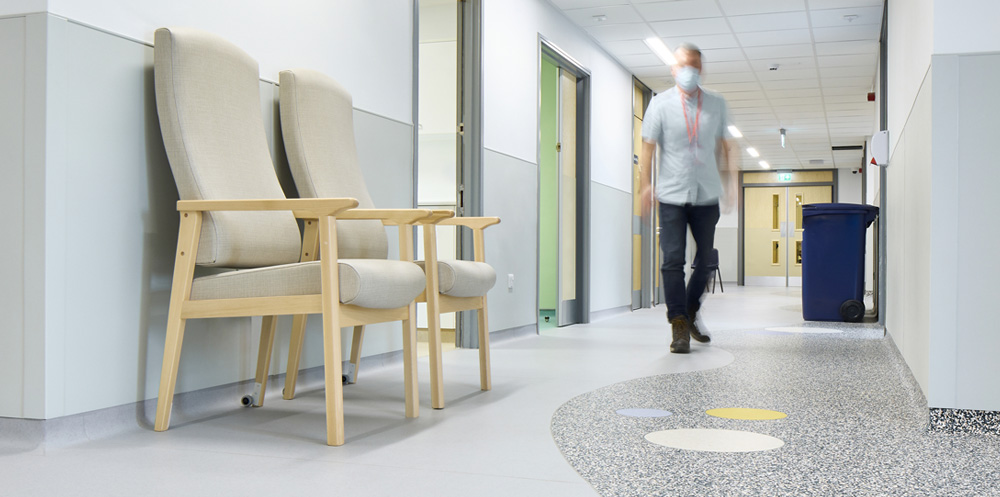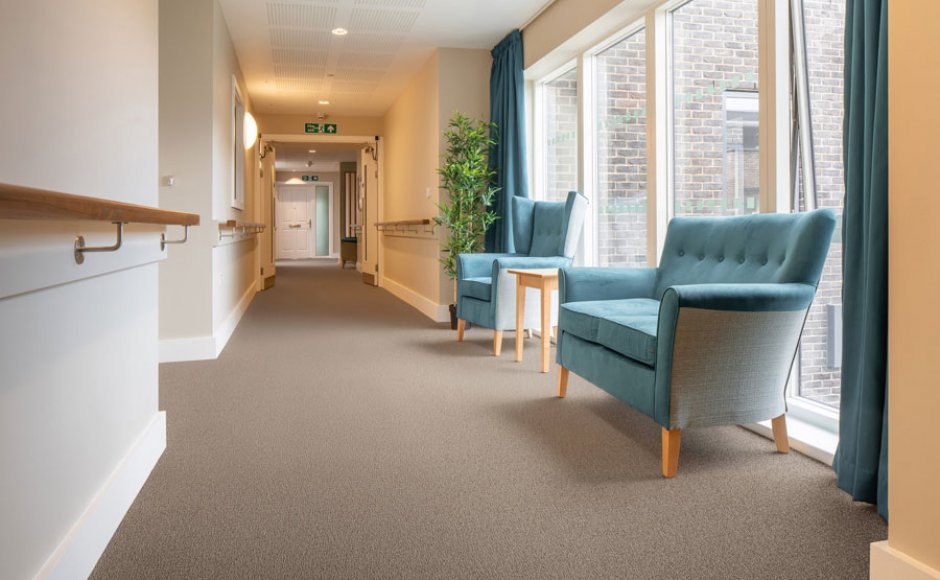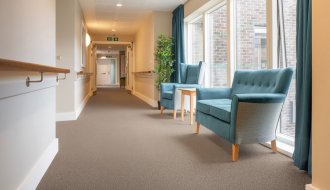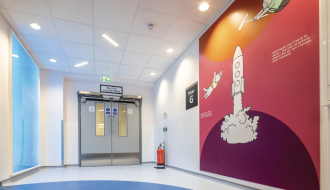Meeting the needs of Dementia Care through design
Designing environments that effectively support individuals with dementia requires more than just evidence-based strategies. This was a focal point of discussion at the ARCH24 conference in Finland, where experts and professionals gathered to explore how design influences our welfare. The conference emphasized the theme “Effects of design on health and wellbeing”, highlighting the need for holistic and adaptable approaches to interior design for dementia care.
At the gathering, Amed Sabri from Gerflor and Ann-Kathrin Salich from Berlin's Technical University held a conference titled “The Need to Go Beyond Evidence”, which emphasized that designing according to scientific evidence alone is insufficient. Instead, successful design for dementia care requires a comprehensive understanding of how interiors can serve individuals best. This presentation, awarded the "Spirit of the Conference" prize, underscored the necessity of integrating aesthetics, ecology, and functionality into cohesive and supportive environments for those with dementia.
Creating intuitive spaces
Designing for dementia involves creating spaces that are easily navigable and intuitive for those affected by the condition. To gain insights and understand the needs and preferences of those living with dementia, Gradus actively engages with stakeholders, including healthcare professionals and individuals affected by dementia.
Ingemar Jensen, Key Account Manager Healthcare at Gerflor, partner of Gradus, attended the conference and explains:
– In designing for dementia, much of it is about creating a comprehensible interior for those who suffer from the disease. Our approach is to 'see through their eyes,' using available research to simplify and clarify the spatial layout so that people can live as independently as possible.
To further develop products tailored for the dementia care sector, Gradus collaborates closely with the Dementia Services Development Centre (DSDC). This partnership ensures that their offerings are rigorously evaluated and informed by the latest research and best practices in dementia care. Inspired by the insights shared at ARCH24, Gradus aims to enhance the integration of their products into the overall design, considering aesthetic, ecological, and functional aspects.
Ingemar Jensen notes:
– Much of our work involves leveraging our network of professionals, institutes, and prescribers to incorporate a wide range of knowledge. By building a network of professionals, institutions, and specifiers, Gradus and Gerflor can gather diverse knowledge and perspectives to inform their design process.

Involving caregivers in the design process
To visualize and provide feedback on proposed designs, Gradus involves caregivers and healthcare providers by creating mock-ups; Small modules with actual materials. This collaborative approach ensures that products are tailored to the real needs within dementia care settings, fostering environments that benefit both individuals with dementia and their caregivers.
The partnership between Gradus and Gerflor combines unique expertise and a broad product range, offering comprehensive solutions for dementia care interiors. This collaboration allows for a wide array of options to meet customer demands, leveraging the strengths of both companies.
Jensen emphasizes;
– Gradus and Gerflor together have unique expertise and a wide range of products in this area, which gives us great opportunities to meet customer needs with comprehensive solutions. I believe that a good environment that creates less stress and anxiety for a person with dementia also makes things significantly easier for the staff. It's crucial to be attentive and listen both to studies that show design can help reduce anxiety in those affected by dementia and to the knowledge and methods of caregivers, so we can reach a consensus on the kind of environment we want to create.
Trends in dementia care design
A significant trend in dementia care design is creating homelike environments. This shift towards familiar and comforting settings has led to exciting development projects, suggesting new product innovations in the near future. Gradus is actively adapting its solutions to align with these trends, ensuring that their products contribute to the evolving landscape of dementia care.
Jensen concludes;
– The major trend is to make care as homelike as possible, which is leading to some exciting development projects. I believe we will see new product innovations soon. The role of design is primarily to contribute to the most independent life possible. In dementia care, it's about creating a sense of security and calm, but there must also be some stimulation to avoid monotony. If there is a calm base, other aids can contribute to a more active lifestyle.
Are you interested in how we can help you transform spaces with products made for safety and wellbeing?
You are always welcome to contact us for more information.



